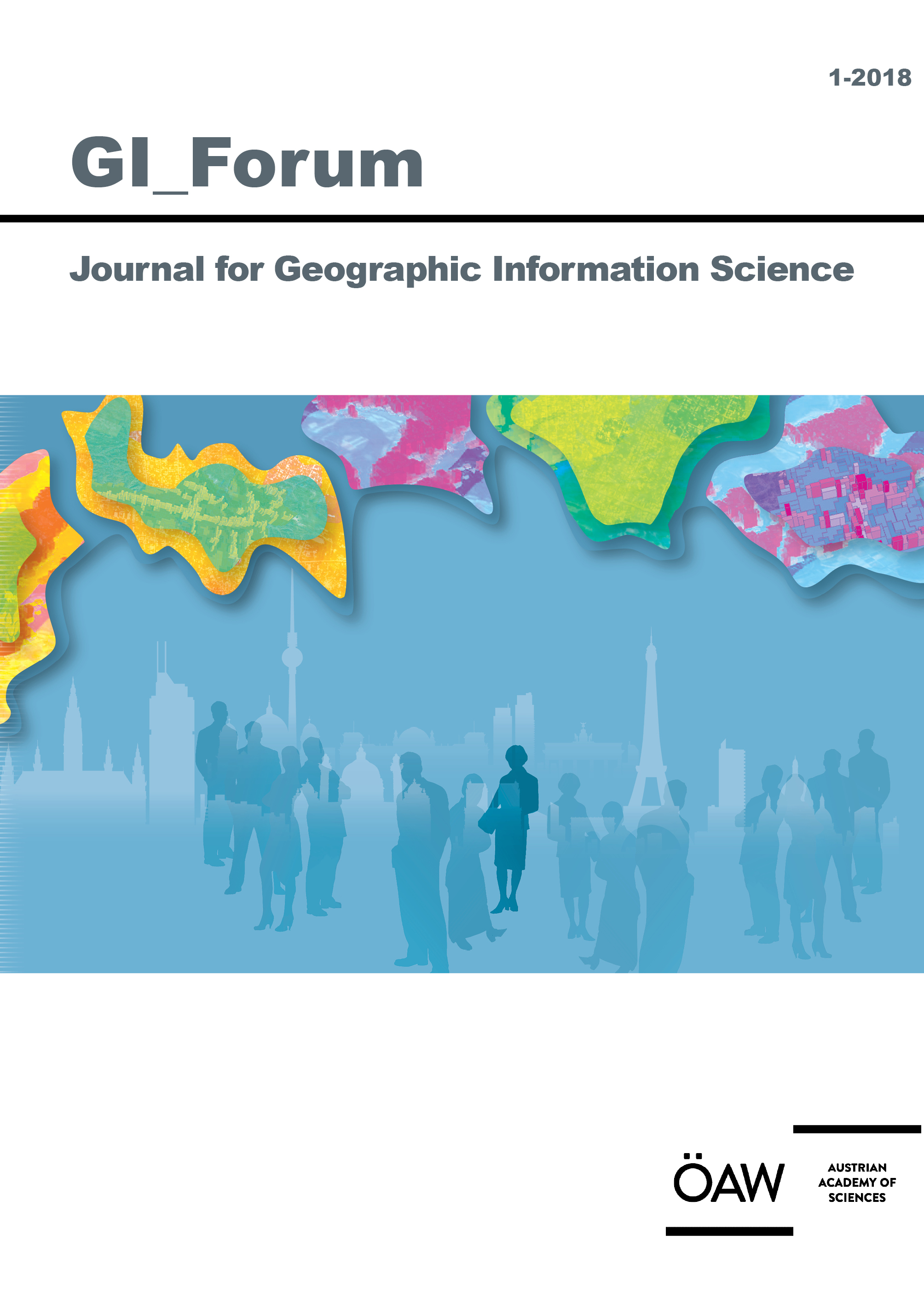 |
 |
Adrijana Car – Thomas Jekel – Josef Strobl – Gerald Griesebner (Eds.)
GI_Forum 2018, Volume 6, Issue 1
Journal for Geographic Information Science
Helena Bergstedt,
Alina Ristea,
Bernd Resch,
Annett Bartsch
S. 47 - 64 doi: 10.1553/giscience2018_01_s47
Verlag der Österreichischen Akademie der Wissenschaften doi: 10.1553/giscience2018_01_s47
Abstract:
The Arctic, and with it the State of Alaska, USA, is an area highly impacted by climate change. Changing environmental conditions have started to impact local communities, causing a need for changes ranging from new infrastructure to the relocation of entire towns. These changes connected to rising temperatures have been shown to affect people’s overall health, and their mental health in particular. Previous studies using opinion-mining and Twitter data have focused on large areas, not distinguishing between regions within countries. In the course of the research presented in this paper, we analysed Twitter data for the period 2013–2017, from which we extracted opinions concerning climate change topics by applying sentiment analysis (polarity and feelings) and climate change dictionaries, on a 10 x 10 km grid for the State of Alaska, USA. The number of climate change-relevant tweets was found to be much lower than reported in previous studies, where the USA was only considered in its entirety. After applying a topic-modelling approach, we found little difference between the spatial distributions of hotspots for the different climate change topics. A comparison with population data showed considerable biases towards English-speaking communities, tweets in indigenous languages being excluded when pre-defined dictionaries in English were used.
Social Media, Climate Change, Alaska, opinion mining Published Online:
2018/07/02 07:33:11 Document Date:
2018/06/22 07:33:00 Object Identifier:
0xc1aa5576 0x00390cc2
Rights:https://creativecommons.org/licenses/by-nd/4.0/
GI_Forum publishes high quality original research across the transdisciplinary field of Geographic Information Science (GIScience). The journal provides a platform for dialogue among GI-Scientists and educators, technologists and critical thinkers in an ongoing effort to advance the field and ultimately contribute to the creation of an informed GISociety. Submissions concentrate on innovation in education, science, methodology and technologies in the spatial domain and their role towards a more just, ethical and sustainable science and society. GI_Forum implements the policy of open access publication after a double-blind peer review process through a highly international team of seasoned scientists for quality assurance. Special emphasis is put on actively supporting young scientists through formative reviews of their submissions. Only English language contributions are published.
Starting 2016, GI_Forum publishes two issues a Year.
Joumal Information is available at: GI-Forum
GI_Forum is listed on the Directory of Open Access Journals (DOAJ)
|




 Home
Home Print
Print
 References
References
 Share
Share
